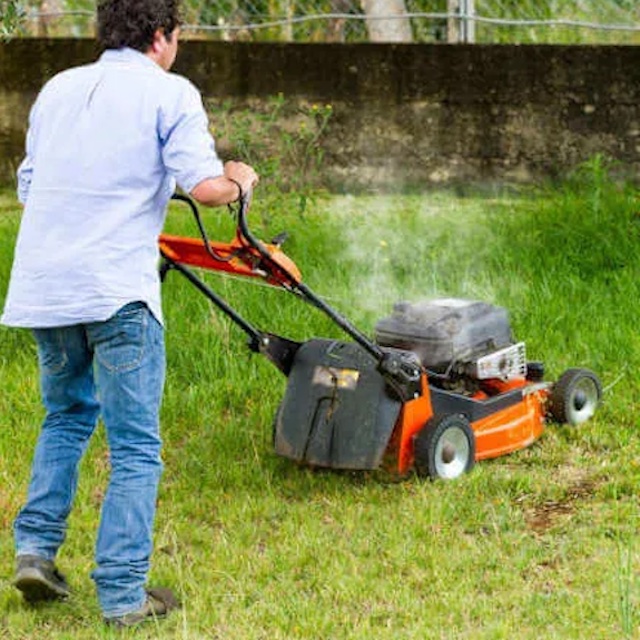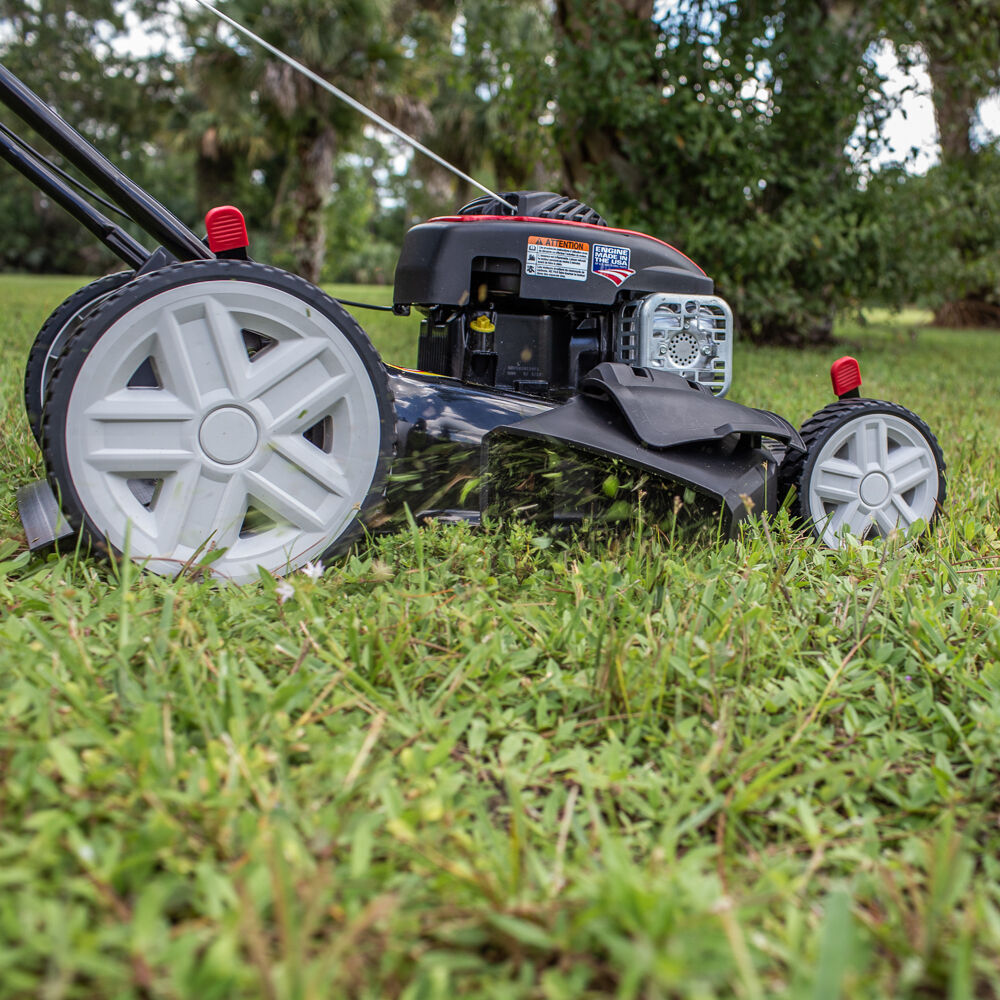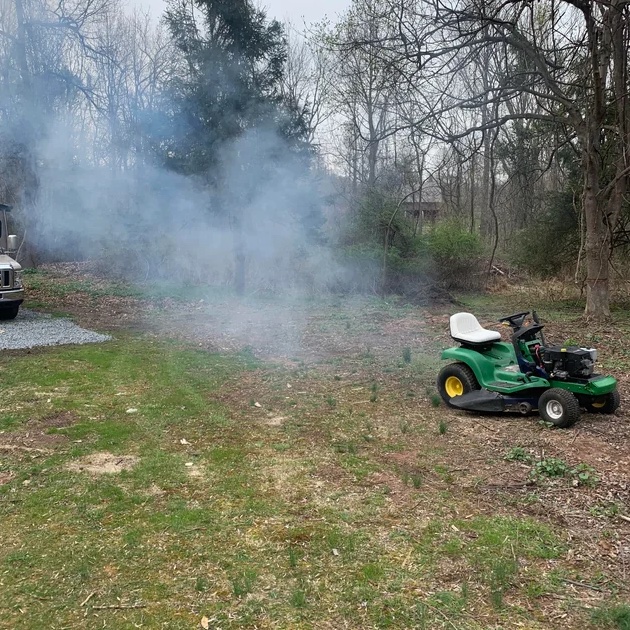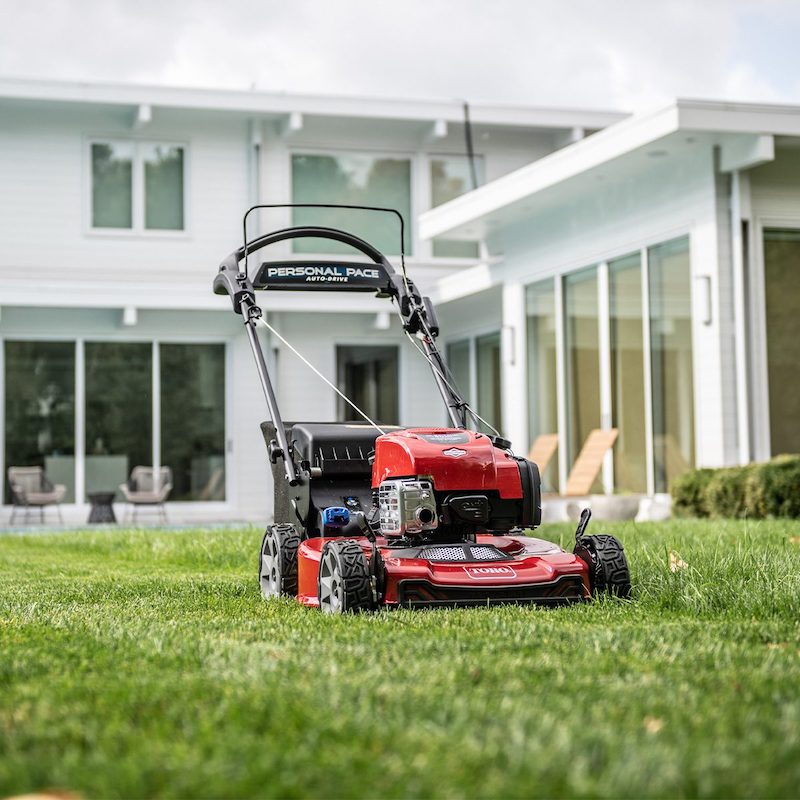Introduction to Lawn Mower Smoke Issues
Is your lawn mower blowing white smoke? Experiencing smoke from your lawn mower can be alarming, but understanding the issue is key. The smoke can vary in color and each signifies different problems — some simple, others more complex. Recognizing the smoke color helps in diagnosing the problem accurately and efficiently. Knowing how to handle these situations can save you time and prevent potential damage to your mower. Armed with the right knowledge about what causes a lawn mower to emit smoke, you can identify issues quickly and decide whether it’s something you can fix yourself or if professional help is needed. Stay informed and your lawn mower will thank you through years of reliable service.
Identifying the Cause by Smoke Color
When your lawn mower emits smoke, the first step is deciphering the smoke color. Different smoke colors indicate various issues, ranging from minor problems to ones that might require professional intervention. Understanding the distinctions between white, blue, and black smoke can guide you in troubleshooting and possibly fixing the issue yourself before it escalates.
White or Blue Smoke Causes
White or blue smoke typically points to oil-related issues within your mower. If you notice this type of smoke, it could be due to an oil spill on the engine or an overfilled oil reservoir. When changing oil or tipping your mower on its side, oil might accidentally spill onto the engine, causing it to smoke once the mower is restarted. To resolve this, let the mower run for a few minutes; the heat will often burn off the excess oil, eliminating the smoke. Always ensure you’re handling the mower according to the guidelines mentioned in the owner’s manual, especially when performing maintenance like oil changes.
Another reason for white or blue smoke could be using the wrong oil grade. Check your owner’s manual for the manufacturer-recommended oil and ensure you’re filling the mower with the correct type. Incorrect oil can lead to inadequate lubrication and cause the engine to overheat and smoke.
Black Smoke and Its Implications
Black smoke, on the other hand, generally signals that the mower is burning too much gasoline. This issue often ties back to the lawn mower’s carburetor. If the carburetor mix is too rich in gasoline, due to a clogged air filter or incorrect settings, black smoke will emerge from the mower. Replacing the air filter or adjusting the carburetor settings can often fix this issue. Check your lawn mower’s manual for guidance on how to adjust the carburetor or replace the air filter based on your specific model.
It’s essential to address smoking issues immediately to prevent long-term damage to your lawn mower’s engine. Identifying the cause by the color of the smoke not only simplifies troubleshooting but also helps you take swift, effective action to protect your machine.
Common Reasons for White or Blue Smoke
White or blue smoke from your lawn mower typically signifies oil issues. Here are common reasons why this might be happening:
Oil Spills on the Engine
Oil can spill onto the engine during maintenance or if the mower is tilted. This leads to white or blue smoke when the mower is turned on. Let the engine run for a few minutes; the heat should help burn off the excess oil. Always handle the mower carefully to avoid spills and check the manual for specific maintenance instructions.
Overfilled Oil Reservoir
Adding too much oil can result in excessive smoke. Check the oil level using the dipstick; remove excess if over the recommended level. Refer to your lawn mower’s manual for the correct procedure to check and adjust the oil.
Using Incorrect Oil Grade
Using the wrong type of oil can cause smoking issues. Incorrect oil affects engine performance and might lead to overheating. Always use the manufacturer-specified oil grade to ensure proper engine function and to prevent smoking problems.
Addressing Black Smoke
When your lawn mower is blowing black smoke, it’s burning too much fuel. This often means the air-to-gasoline ratio is off. An issue with the carburetor or a dirty air filter might be to blame. Let’s look at what to do in both situations.
Role of the Carburetor
The carburetor controls the mix of air and gasoline in your lawn mower’s engine. If it’s not allowing enough air, the mix is too rich with gasoline, leading to black smoke. You may need to adjust the carburetor. Your owner’s manual can guide you on how to do this. If the manual is not clear, consider seeking help from a professional. Keep in mind, a well-adjusted carburetor helps your mower run efficiently.
Air Filter Maintenance
Between uses, grass and debris can clog your lawn mower’s air filter. A dirty air filter restricts air flow to the carburetor. This causes too much gasoline in the mix and results in black smoke. To fix it, replace the air filter as needed. Check the manual for the correct type of filter and the recommended replacement schedule. Regular air filter checks and maintenance can prevent black smoke issues and keep your mower in top condition.
When to Seek Professional Help
Sometimes, despite our best efforts, lawn mower issues go beyond the scope of DIY repairs. It’s vital to know when to seek professional help to avoid causing further damage to your lawn mower. Tackling complex mechanical problems without the right expertise can be a costly mistake. Let’s discuss when it’s time to call in the experts.
Persistent Smoke Issues
If the smoke from your lawn mower persists even after you’ve taken all the recommended steps, it may indicate a deeper problem. An ongoing white or blue smoke issue could mean that there’s a consistent oil leak or that engine seals are failing. Black smoke that continues to billow after cleaning or replacing the air filter and adjusting the carburetor suggests a more intricate issue with the fuel system. In these cases, it’s best to consult a professional. They have the tools and knowledge to diagnose and repair problems that might not be obvious to the average user.
Serious Mechanical Concerns
Certain issues, like an air leak in the crankshaft or worn-out engine components, definitely require professional attention. The same applies if you suspect a fault in critical parts such as the pistons or the rings. If you’re not fully confident in tackling repairs like these, it’s time to seek out a reputable lawn mower repair service. A skilled technician can assess the severity of the situation and perform necessary repairs or part replacements. Remember, working on complex mechanical concerns without proper skill can result in further damage, void warranties, and potentially be unsafe.
Professional help ensures that your lawn mower is in good hands and can save you from the expenses that come with self-repair attempts gone wrong. It’s also worth checking if your mower is still under warranty, as you might be eligible for free or reduced-cost servicing. Don’t hesitate to ask for professional assistance when faced with persistent smoke issues or serious mechanical concerns.
Preventative Measures and Maintenance Tips
To keep your lawn mower running smoothly and prevent white or black smoke, regular maintenance is key. Stay ahead of potential issues with these tips.
Regular Oil and Air Filter Checks
Make it a habit to check your lawn mower’s oil and air filter regularly. This simple step can save you from future smoke and engine troubles.
Before each use, take a moment to look at the oil level using the dipstick. Fill or drain as needed, but never overfill. The right oil level is crucial for a smoke-free operation.
Change your air filter at the intervals suggested by your mower’s manual. A clean filter means better engine performance and less chance of black smoke.
Regular checks and timely maintenance can keep your mower in top condition and prevent the frustration of unexpected issues.
Understanding Your Lawn Mower’s Manual
Your lawn mower’s manual is your go-to resource. It holds all the information you need for proper care.
Read your manual carefully to understand your mower’s needs. This includes oil type, filter specifications, and maintenance schedules.
Follow your manual’s instructions when performing any maintenance to ensure you don’t unintentionally cause harm to your mower.
Your manual might also provide troubleshooting tips, which can be helpful if your mower starts smoking. Keep it in an easy-to-find place for quick reference.
By adopting these preventative measures and sticking to regular maintenance, you’ll likely experience fewer issues, such as white or black smoke, and enjoy a longer lifespan for your lawn mower.
FAQs about Lawn Mower Smoke
Low Oil Levels and White Smoke
Low oil levels in your lawn mower often lead to white smoke. Always check the oil dipstick before use. If it’s low, add the correct type specified in your manual. Never overfill, as this can also cause smoking issues.
Air Filter’s Role in Smoke Emission
A clogged air filter restricts airflow to the carburetor, enhancing black smoke. Regularly check and replace your lawn mower’s air filter. Follow the manufacturer’s guide on filter types and replacement intervals.
Myths about White Smoke
A common myth is that all white smoke indicates a serious engine problem. In fact, minor oil spills or low oil can cause white smoke, which is often fixable without professional help. Always verify the cause before assuming the worst.



